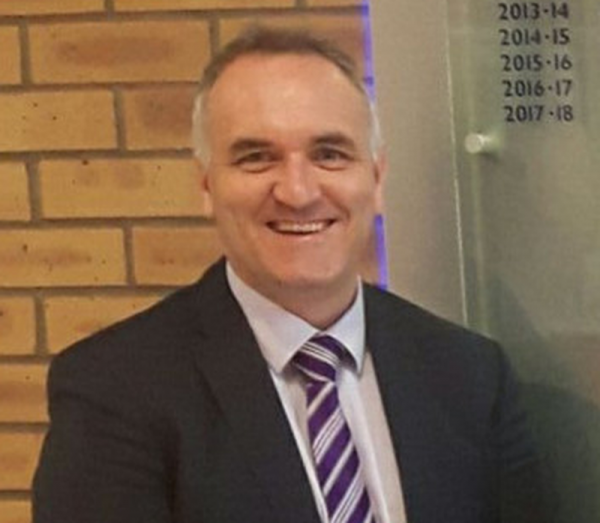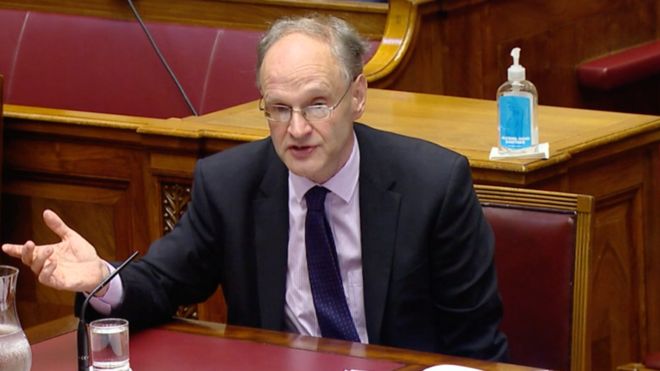
Michael Allen, principal of Lisneal College in the Waterside
But Michael Allen, from Lisneal College in the Waterside area of the city, says “the job is not done yet”.
He said the work of Year 11 and Year 13 pupils must now be addressed – those are the pupils in the first year of their GCSE and A-level courses and who will sit exams in 2021.
“We have thousands of Year 11 pupils who sat modules and units and in particular we have to look very closely at AS-levels because essentially the work they have done in Year 13 was amounting to nothing in the grand scheme of things,” Mr Allen told BBC Radio Ulster’s Good Morning Ulster programme.
“We need to revisit that and see if teacher calculated and assessed grades can form part of the A2 (A-level)”.
Mr Allen said roundtable discussions were needed with all interested parties, including the Department of Education and examinations body CCEA to ensure “they fully understand how schools work”.
“The circumstances everyone found themselves in was incredibly very difficult particularly at leadership level, however I think we had the opportunity to take the lead,” he said.
“We don’t always have to sit back and wait on England.
“I felt it was in the minister’s gift to move first and look after the benefits of those in Northern Ireland before anyone else.”
Meanwhile, the Stormont Assembly will hold a special recall meeting later on Tuesday with the parties due to hold a debate on exam results.
The SDLP had proposed the non-binding motion, so assembly members could return early from summer recess to discuss the issue.
Since then the education minister has changed how the grades will be decided.
The major u-turns followed widespread criticism of the process exam board CCEA had used to calculate results.
Last Thursday, more than a third of estimated grades allocated by teachers to A-level and AS level students were lowered in the final results.
It was because of a process known as standardisation, which aims to avoid a situation where a school could award all its pupils unrealistically high marks.
It is understood a number of amendments have been tabled by the parties ahead of the debate, which is scheduled to start at 12:00 BST on Tuesday.

Education Minister Peter Weir did a U turn over A Level results fiasco on Monday
However it is up to the Speaker Alex Maskey to determine whether any amendments should be accepted.
On Tuesday afternoon, Mr Weir is also due to appear before the Education Committee to discuss the return of schools in the North of Ireland over the next fortnight.
Tags:




